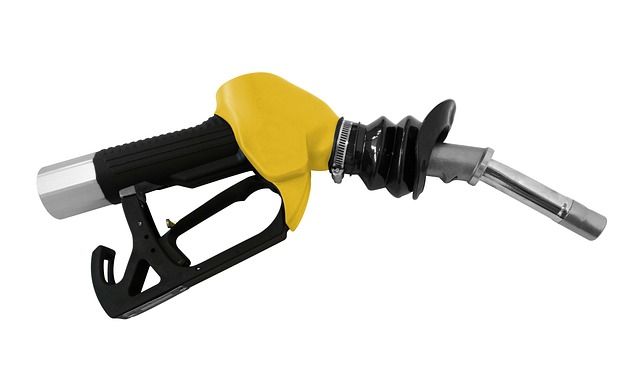Yoga Therapy: Mind-Body Connection for Long-Term Sobriety Motivation
Yoga therapy offers a unique, holistic approach to addiction recovery, combining physical yoga postu…….
Over 15% US adults have used prescription painkillers not prescribed to them.
In the pursuit of long-term sobriety, staying motivated is an ongoing challenge that requires dedication, strategy, and a multifaceted approach. This article delves into the various methods and strategies individuals can employ to maintain their focus, resolve, and drive over an extended period, ultimately fostering successful and lasting recovery. By exploring diverse aspects, from personal mindset shifts to global initiatives, we aim to equip readers with valuable insights to navigate their journey toward sustained sobriety.
Definition: Staying motivated in long-term sobriety refers to the processes and practices that enable individuals to maintain their commitment to abstinence or positive behavior change over an extended period, typically years or even decades. It involves a conscious effort to overcome cravings, manage triggers, and cultivate a mindset conducive to continued growth and wellness.
Core Components:
Self-Awareness: Understanding one’s triggers, cravings, and emotional states is crucial for motivation. Recognizing patterns of behavior and their underlying causes empowers individuals to make informed choices.
Support System: Building and maintaining a strong support network is vital. This includes friends, family, support groups, therapists, or mentors who provide encouragement, accountability, and guidance during the recovery journey.
Mindset and Coping Mechanisms: Developing a positive mindset, learning stress management techniques, and adopting healthy coping strategies are essential tools. These mechanisms help individuals reframe challenges as opportunities for growth and maintain focus on their goals.
Goal Setting and Tracking: Setting achievable goals and regularly assessing progress provides a sense of accomplishment and direction. Visual aids, such as charts or journals, can be used to track milestones, reinforcing positive behaviors and motivating continued effort.
Historical Context: The concept of long-term sobriety has evolved over time, reflecting societal changes and advancements in the field of mental health and addiction treatment. Historically, institutions played a significant role in managing addiction, often employing harsh methods. In recent decades, there has been a shift toward community-based approaches, emphasizing personal responsibility, self-help groups, and evidence-based treatments. This evolution underscores the growing recognition of individual agency and the importance of tailored strategies for long-term success.
The global impact of strategies aimed at maintaining long-term sobriety is significant, with numerous initiatives and research efforts focused on this critical aspect of recovery. Key trends shaping its trajectory include:
| Trend | Impact/Observation |
|---|---|
| Increased Access to Treatment: Many countries are witnessing improved access to addiction treatment services, leading to higher rates of successful long-term sobriety. | – Reduced stigma associated with seeking help. – Early intervention and prevention programs gaining traction. |
| Digital Therapeutics: The rise of digital platforms offers accessible and personalized resources for motivation and recovery tracking. | – Increased engagement and interaction through mobile apps and online communities. – 24/7 access to educational content and support. |
| Cultural Sensitivity: Recognizing the impact of cultural factors on addiction and recovery has led to more tailored interventions. | – Greater inclusivity and effectiveness in diverse populations. – Culturally specific treatment programs gaining popularity. |
| Peer Support Groups: The power of peer-to-peer support is being widely recognized, with numerous groups forming globally. | – Enhanced sense of community and belonging. – Lower relapse rates among members who actively participate. |
Regional differences in sober living communities, treatment availability, and cultural attitudes towards addiction contribute to varying levels of success in maintaining long-term sobriety across the globe.
The economic implications of long-term sobriety are far-reaching, impacting both individual and societal levels:
Market Dynamics: The global addiction treatment market is growing, driven by increasing demand for effective, long-lasting solutions. This growth is fueled by rising awareness, improved access to care, and the integration of digital technologies.
Investment Patterns: Private equity firms and venture capitalists are increasingly investing in startups focused on innovative sober living and recovery solutions, recognizing their potential for positive social impact and financial returns.
Economic Impact: Successful long-term sobriety initiatives can lead to reduced healthcare costs, decreased crime rates, and improved overall productivity within communities. This is particularly evident in regions where addiction-related issues have historically burdened public services.
Technology plays a pivotal role in enhancing motivation and accessibility in the context of long-term sobriety:
Mobile Apps: Various apps offer personalized programs, mood tracking, meditation guides, and access to online support groups, providing users with convenient tools for staying motivated and accountable.
Virtual Reality (VR) Therapy: VR is being used to expose individuals to addictive triggers in a controlled environment, helping them develop coping strategies and enhance their ability to resist cravings.
Wearable Devices: Fitness trackers and smartwatches can be utilized to monitor physical activity, sleep patterns, and stress levels, offering insights into overall wellness and potential triggers for relapse.
Artificial Intelligence (AI): AI algorithms can analyze vast amounts of data to predict relapse risks and provide personalized recommendations, enhancing the effectiveness of sober living programs.
Policies and regulations significantly shape the landscape of long-term sobriety support:
Treatment Parity Laws: These laws ensure equal access to addiction treatment services, prohibiting discrimination based on substance use disorders. They promote early intervention and reduce barriers to care.
Funding and Subsidies: Governments play a crucial role in funding addiction treatment programs, research, and sober living communities. Adequate funding ensures the availability of quality services for those in need.
Regulatory Oversight: Licensing and certification standards for recovery centers and support services ensure quality control and safety for residents. Regular inspections and compliance checks maintain high-quality care.
Global Collaboration: International organizations and collaborations facilitate the sharing of best practices, research findings, and resources, contributing to global efforts in improving long-term sobriety outcomes.
Despite the progress made, staying motivated in long-term sobriety faces several challenges:
Relapse Rate: The high relapse rate is a significant concern, with many individuals experiencing multiple episodes of sobriety followed by return to substance use. Addressing this requires comprehensive strategies that consider individual and environmental factors.
Stigma and Discrimination: Stigma surrounding addiction often deters individuals from seeking help, and discrimination in various settings can hinder long-term recovery. Raising awareness and implementing anti-stigma campaigns are essential.
Access to Care: Inequitable access to quality addiction treatment services remains a challenge, particularly in underserved communities. Expanding coverage and improving affordability are necessary to ensure universal access.
Solutions and Strategies:
Personalized Treatment Plans: Tailoring interventions to individual needs, considering cultural backgrounds, personal histories, and unique triggers, can significantly enhance motivation and long-term success rates.
Integrated Care Models: Combining medical, psychological, and social services within comprehensive care models improves outcomes by addressing physical health, mental health, and social support simultaneously.
Community Engagement: Building strong community connections through peer support groups, educational programs, and social activities fosters a sense of belonging and increases motivation to stay sober.
Continuous Quality Improvement: Regular evaluation and research ensure that interventions remain effective and relevant, allowing for continuous refinement based on emerging evidence.
The Recovery Village, a network of rehabilitation centers across the United States, exemplifies successful long-term sobriety support. Their comprehensive approach includes medical detox, individualized treatment plans, and ongoing aftercare services. By combining evidence-based therapies with holistic practices, they achieve high rates of success, as evidenced by numerous positive client testimonials and low relapse rates.
Australia’s sober living homes, such as the “Sober Living Communities” network, provide transitional housing for individuals moving from treatment to independent living. These communities offer a supportive environment with structured routines, peer support, and access to counseling services. This model has proven effective in helping individuals maintain sobriety while reintegrating into society, reducing the risk of relapse and promoting long-term independence.
Digital platforms like “Sober Grid” and “Clean & Sober” have gained popularity worldwide, offering mobile apps with features such as check-ins, progress tracking, and peer support groups. These programs leverage technology to create virtual communities, providing users with a sense of connection and accountability. User reviews highlight the positive impact on motivation and relapse prevention, especially for individuals who find traditional support groups less appealing.
The future of long-term sobriety support looks promising, with several emerging trends and considerations:
Personalized Digital Therapeutics: Advanced AI algorithms will enable more tailored digital therapy programs, offering customized interventions based on individual needs and progress.
Telehealth and Virtual Care: The integration of telehealth services expands access to specialized care, particularly in rural or underserved areas, making long-term sobriety support more accessible.
Focus on Early Intervention: Growing recognition of the importance of early intervention during adolescence will lead to increased resources and programs targeting youth at risk of substance abuse.
Cultural Competence: Continued emphasis on culturally sensitive practices and diverse treatment approaches will improve outcomes for minority and marginalized communities.
Research into Neuroplasticity: Advancements in neuroscience research may uncover new insights into the brain’s adaptability, leading to innovative strategies for rewiring addictive behaviors.
Staying motivated in long-term sobriety is a complex yet achievable goal that requires a multifaceted approach. By understanding the core components, global trends, economic implications, and technological advancements, we can develop more effective strategies to support individuals on their recovery journeys. Overcoming challenges through personalized interventions, integrated care models, and community engagement will pave the way for improved outcomes and a brighter future for those striving for lasting sobriety.
Q: How do I stay motivated when relapses seem inevitable?
A: Relapses are common, but they don’t define your recovery journey. Focus on learning from each relapse, identifying triggers, and strengthening your support system. Set small achievable goals, celebrate milestones, and remember that setbacks are opportunities for growth.
Q: What role does family play in long-term sobriety?
A: Family support is invaluable. Educate your loved ones about addiction and recovery to foster understanding and encouragement. Involve them in your support system, but also set healthy boundaries to protect your autonomy during the healing process.
Q: Can technology really help me stay sober?
A: Absolutely! Mobile apps, wearables, and virtual reality therapy offer convenient tools for tracking progress, managing cravings, and accessing peer support. These technologies can enhance accountability and provide valuable resources for maintaining motivation.
Q: What if I live in a region with limited access to addiction treatment services?
A: Even with limited resources, there are ways to stay motivated. Explore online support groups, reach out to local community organizations, or consider telemedicine options for counseling. Stay connected with peers who understand your journey, and don’t hesitate to seek help from available resources, no matter how remote.
Q: How can I prevent relapse after achieving long-term sobriety?
A: Maintain a strong support network, practice stress management techniques, and engage in activities that promote well-being. Regularly assess your surroundings for potential triggers and develop strategies to navigate high-risk situations. Stay connected to your recovery community and seek help promptly if you experience any cravings or setbacks.

Yoga therapy offers a unique, holistic approach to addiction recovery, combining physical yoga postu…….

Personalized mindfulness plans, incorporating breathing exercises, visualizations and yoga, offer ta…….

Maintaining proper nutrition through personalized meal plans, combined with ongoing guidance and sup…….

Personalized coaching, combining holistic practices like yoga, meditation, and CBT, offers a unique…….

Digital detox programs offer a unique approach to achieving mental clarity for those recovering from…….

Mindful movement classes combine exercise with mindfulness practices, offering a holistic way to enh…….

Identifying root causes of substance abuse is crucial for effective treatment, focusing on mental he…….

High-risk situations pose significant challenges for maintaining long-term sobriety, but proactive m…….

Holistic wellness programs promote long-term sobriety by addressing physical, mental, and social asp…….